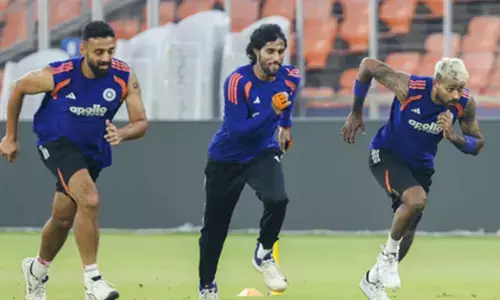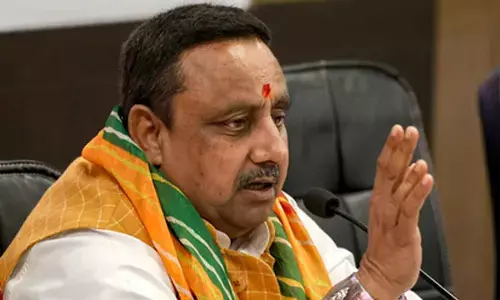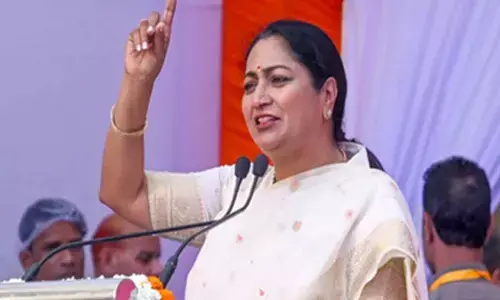Will surety bonds rescue infra cos?

One must have witnessed new multi-lane roads, express highways, new bridges, newer roads passing through large tunnels and many such infrastructural developments in the last few years.
One must have witnessed new multi-lane roads, express highways, new bridges, newer roads passing through large tunnels and many such infrastructural developments in the last few years. This requires enormous amounts of capital spent by the government directly and in some cases in partnership with private players. The spend is on the rise despite the economic downturn caused by the pandemic, though recovered by a large extent, the capital outflow for health has also increased tremendously.
The government has embarked on an ambitious outlay of over Rs 2 lakh crore in next one year alone to rampup infrastructure to build world class roads and bridges connecting all corners of the country. This requires not just spending of massive amounts of capital but a synergy among the various government departments, constructors, engineering firms and contractors. The biggest concern in infrastructure projects is not the capital raisingnor spending but is always in execution.
These large-scale projects involve thorny issues of land acquisitions, coordinating with local authorities/governments and at times untenable terrain other than multi-year timelines which could be subjected to any natural calamities like floods, landslides etc. causing delays. Then there's need of bank guarantees that must be provided by the contractors and sub-contractors. This adds further strain into the whole process, as the last time around over a decade back, when such massive infrastructure push in India led to higher non-performing loans.
As banks continued to deleverage their balance sheets in recent times, they have been cautious to extend support to this sector. One estimate put that one in five projects suffer a half-decade of delays resulting to a staggering loss of about 4.5 lakh crore. In this regard, the government has come up with a plan during the budget for provisions of surety bonds as substitute to bank guarantees for government procurements that could infuse liquidity into infra companies.
In 2020, Insurance Regulatory Authority of India (IRDAI) has formed a committee to study the legal framework and suitability of surety bonds as the then regulations didn't allow underwriting of bonds related to performance and bid securities to be considered as the conventional insurance investments. IRDAI has issued guidelines for these bonds to that effect early this year. The central government has further eased some of the rules in consultation with insurance companies. This Monday onwards, a new era begins as the Ministry of Road Transport and Highways (MoRTH) will launch India's first ever surety bonds.
Surety bonds are guarantees of payment issued by the insurance companies through underwriting the risk of default by charging a premium. This is different from the bank guarantees where the banks withhold a large proportion of the contractors' assets in terms of actual cash or land. Also, these differ from a corporate bond where it turns an obligation of the issuer or fund raiser to repay the debt or loans. Surety bonds thus ease the liquidity of the contractor to allow them to deploy resources aggressively in timely completion of the project.
To reduce the risk to the insurance companies, IRDAI has issued rules, viz., not to exceed 10 per cent of the total gross written premium in a financial year to be underwritten in surety insurance. Insurers could issue contract bonds, which provide assurance to the public entities, developers, subcontractors and suppliers that the contractor will fulfill its contractual obligation when undertaking the project. Contract bonds could include bid bonds, performance bonds, advance payment bonds and retention money.
Bid bonds provide financial protection to an obligee, if a bidder fails to sign the contract and provide any required performance and payment bonds upon awarded a contract. Performance bonds assure the obligee will be protected if the principal and contractor fail to perform the bonded contract. If the obligee declares the principal or contractor as being in default and terminates the contract, can call the surety to meet the surety's obligations. Advance payment bonds are the promises by the surety provider to pay the outstanding balance of the payment in case of contractor fails. Retention money is a part of the amount payable which is retained and payable at the end after successful completion of the contract.
However, the limit of guarantees shouldn't exceed 30 per cent of the overall contract value while surety contracts should be issued only to specific project and can't be clubbed across projects. So, in case of a default the insurer comes into picture and bails out up to the obligation or could even don the hat of the contractor and /or outsource the work to other capable parties. The success of this scheme depends upon the premiums and the underwriting process which should be lower than the current bank guarantees (which even at times range up to 100 per cent of the project cost). Only time would tell if this experiment fructifies boosting the required impetus to this cash-strapped sector.
(The author is a co-founder of Wealocty, a wealth management firm and could be reached at [email protected])








